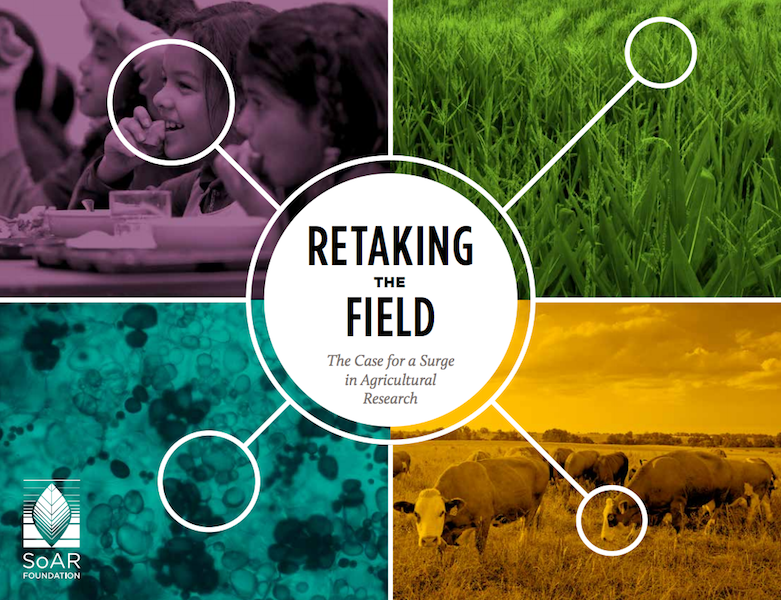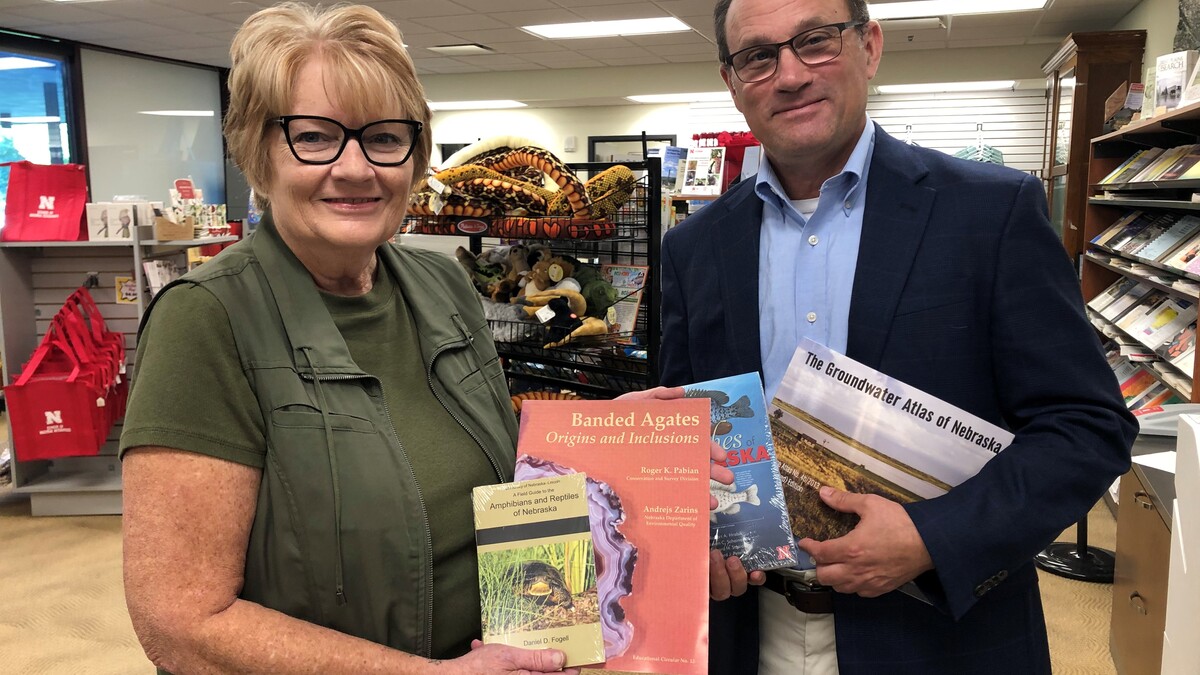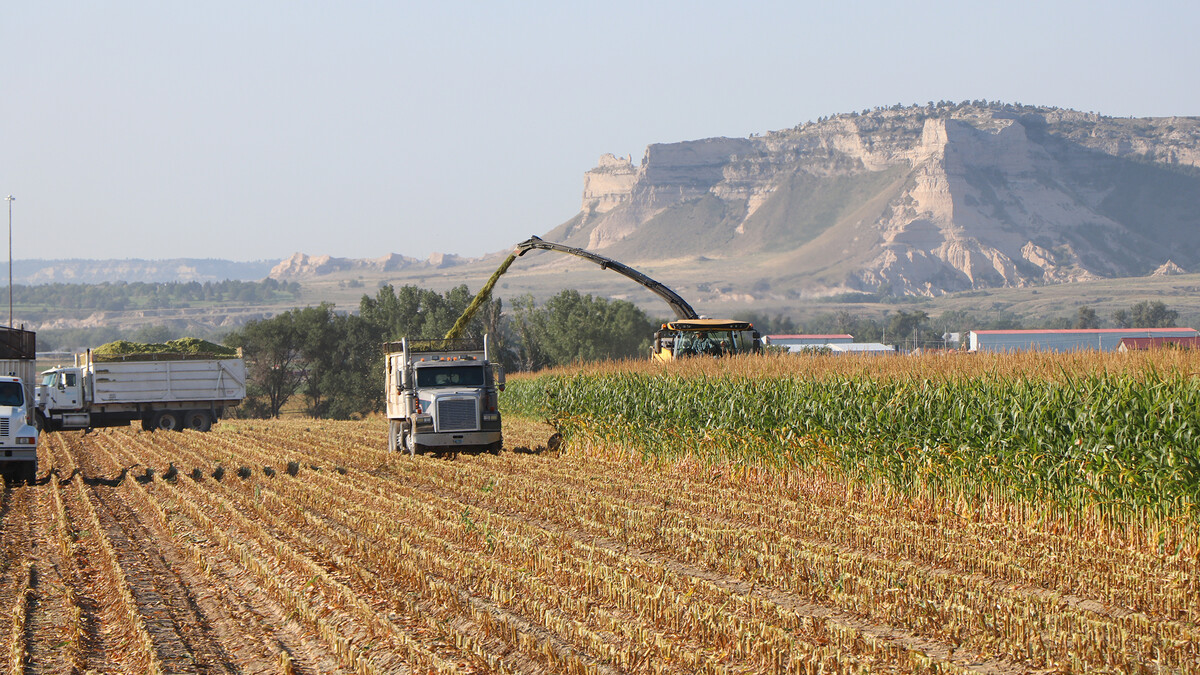
June 14, 2016
Lincoln, Neb. — Thirteen prominent research institutions in the United States, including the University of Nebraska–Lincoln, joined the Supporters of Agricultural Research (SoAR) Foundation today in calling for a surge in federal support of food and agricultural science. Retaking the Field, the report released by this coalition, highlights recent scientific innovations and illustrates how US agricultural production is losing ground to China and other global competitors.
Retaking the Field looks at the importance of agriculture and its related industries to the US economy. According to the US Department of Agriculture, this sector was responsible for nearly one in 10 jobs in 2014 and contributed $835 billion to the U.S. gross domestic product. Even though every public dollar invested in agricultural research provides $20 in economic returns, the federal budget for agricultural research has remained flat for decades. Today, the US trails China in both agricultural production and public research funding.
Suat Irmak, Harold W. Eberhard Distinguished Professor of Biological Systems Engineering at UNL, has been taking his team’s research to a network of farmers created through direct outreach. In 2005, the Nebraska Agricultural Water Management Network started with just 15 farmers. Today, it is up to 1,400. Through this network, farmers have embraced conservation principles and technologies, reducing irrigation by more than two inches per acre each growing season.
“We work with farmers to learn about real-world issues,” said Irmak, whose work is highlighted in the Retaking the Field report. “Sharing our results for adoptions is as important as the research itself.”
Nebraska’s use of irrigation management technology has also increased. The state now ranks second nationally in deploying these innovations. The network also increased the scientific literacy of Nebraska’s agricultural community, helping them understand, for example, how changes in climate variables impact their fields.
With no end to water worries in sight, Irmak will continue to discover and propagate new ways to save.
“Researchers are discovering incredible breakthroughs, helping farmers produce more food using fewer resources, and keeping our meals safe and nutritious,” said Thomas Grumbly, President of the SoAR Foundation. “However, the science behind agriculture and food production is starved of federal support at a time of unprecedented challenges. A new surge in public funding is essential if our agricultural system is going to meet the needs of American families in an increasingly competitive global market.”
Farming has never been an easy endeavor and today’s challenges to agricultural production are daunting. The historic California drought continues and US production is also threatened by new pests and pathogens, like the 2015 Avian Influenza outbreak that led to the culling of 48 million birds in 15 states and $2.6 billion in economic damages.
“Every year, the director of national intelligence testifies before Congress that our national security is threatened by hunger in unstable regions,” said Grumbly. “As the number of people on our planet continues to grow, we must produce more food. This cannot be done with yesterday’s science. We need a larger infusion of cutting-edge technologies.”
The Retaking the Field report can be downloaded at http://supportagresearch.org/retakingthefield/.
Suat IrmakDepartment of Biological Systems Engineering
402-472-4865
sirmak2@unl.edu







